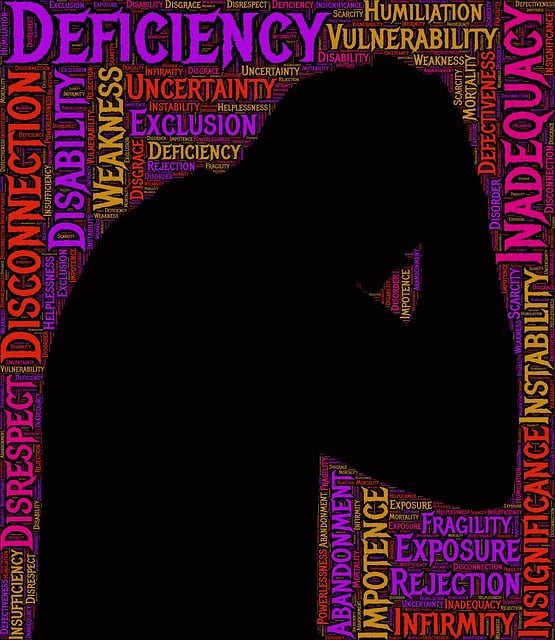Castle Rock Chronic Illness Therapy emphasizes the critical role of Crisis Intervention Teams (CITs) in enhancing community mental health support, especially in areas with limited access to specialized therapy. Through their Community Outreach Program, they partner with schools, healthcare providers, and law enforcement to integrate CITs into local systems. The therapy center offers specialized training programs that teach coping skills, emotional regulation strategies, crisis intervention, and risk management planning, empowering caregivers to support individuals during acute mental health episodes. Their immersive sessions combine mental health education, confidence-building, cultural sensitivity, role-playing scenarios, and stress reduction techniques, aiming to revolutionize care delivery and foster safer, more resilient communities.
Crisis intervention teams (CITs) are essential resources for providing immediate mental health support during times of crisis. This article delves into the critical role of CITs and explores how specialized training programs, such as those offered by Castle Rock Chronic Illness Therapy, equip individuals to effectively navigate and de-escalate distressing situations. We’ll uncover the key components of successful training, highlighting their impact on communities in need. By understanding these programs, we can foster healthier and more resilient environments.
- Understanding Crisis Intervention Teams: A Vital Resource for Mental Health Support
- Castle Rock Chronic Illness Therapy: Specializing in Training and Care
- Components of Effective Crisis Intervention Team Training Programs
- Implementation and Impact: How These Programs Make a Difference in Communities
Understanding Crisis Intervention Teams: A Vital Resource for Mental Health Support

Crisis Intervention Teams (CITs) are a vital resource for mental health support, especially in communities where access to specialized therapy might be limited. These teams typically consist of trained professionals from various disciplines, including social workers, psychologists, and law enforcement officers, who collaborate to provide immediate assistance during crises. At Castle Rock Chronic Illness Therapy, we recognize the importance of CITs in enhancing community resilience and well-being.
Through our Community Outreach Program Implementation, we promote the integration of CITs into local support systems. By fostering strong partnerships with schools, healthcare providers, and law enforcement agencies, these teams can ensure that individuals experiencing mental health crises receive timely interventions. Additionally, coping skills development and emotional regulation strategies are key components of effective CIT training. Empowering team members with these tools allows them to de-escalate situations and support the long-term mental health of those in need.
Castle Rock Chronic Illness Therapy: Specializing in Training and Care

Castle Rock Chronic Illness Therapy stands out as a specialized entity, offering comprehensive training programs tailored to address complex challenges within mental health care. Their expertise lies in equipping professionals with essential tools for managing chronic illnesses, focusing on both patient care and emotional well-being promotion techniques. Through immersive sessions, they teach effective stress reduction methods, ensuring healthcare providers are equipped to handle high-pressure situations.
Beyond crisis intervention training, Castle Rock Chronic Illness Therapy emphasizes the critical aspect of risk management planning for mental health professionals. By integrating evidence-based practices, they empower caregivers to navigate intricate patient cases, fostering a supportive environment that enhances recovery journeys. This specialized approach underscores their commitment to revolutionizing mental healthcare delivery.
Components of Effective Crisis Intervention Team Training Programs

Effective crisis intervention team training programs are multifaceted, encompassing a range of essential components to equip professionals with the skills needed for high-pressure situations. These programs must begin with a solid foundation in mental health education, providing participants with a deep understanding of various crises, their triggers, and the unique challenges associated with different populations. For instance, integrating Castle Rock Chronic Illness Therapy techniques can empower teams to support individuals grappling with long-term health conditions during acute episodes.
Moreover, training should focus on building confidence-boosting strategies. Role-playing scenarios that simulate real-life crises allow team members to practice their responses in a safe environment, fostering trust and assuredness when facing actual emergencies. Cultural sensitivity is another cornerstone; programs must instill an awareness of diverse cultural perspectives and backgrounds, ensuring effective communication and respectful interventions across varied communities. These comprehensive Mental Health Education Programs Design elements are vital for creating a cohesive crisis intervention team capable of delivering timely and culturally sensitive support.
Implementation and Impact: How These Programs Make a Difference in Communities

The successful implementation of crisis intervention team training programs can dramatically transform communities, offering a robust framework for handling mental health crises and improving overall well-being. These initiatives, often led by organizations like Castle Rock Chronic Illness Therapy, equip community members with essential skills in stress management workshops and communication strategies. As a result, individuals become better equipped to recognize signs of distress and provide effective support, reducing the burden on emergency services.
By fostering a culture of empathy and proactive intervention, these programs create safer, more resilient communities. Participants learn not only how to manage stress but also how to de-escalate tense situations through compassionate communication. This training empowers bystanders to step in during moments of crisis, potentially preventing tragic outcomes. The impact extends beyond the immediate intervention; it fosters a supportive environment where individuals feel heard and understood, reflecting improved mental health outcomes within the community.
Crisis intervention team (CIT) training programs, such as those offered by Castle Rock Chronic Illness Therapy, play a pivotal role in enhancing mental health support within communities. By equipping individuals with the necessary skills and knowledge, these programs ensure that everyone, including those facing chronic illnesses, receives prompt and effective assistance during crises. The comprehensive approach, encompassing education, role-playing, and real-world simulations, has been proven to improve community well-being and reduce the burden on emergency services. Effective CIT training is a game-changer in fostering resilient, supportive environments for all.














